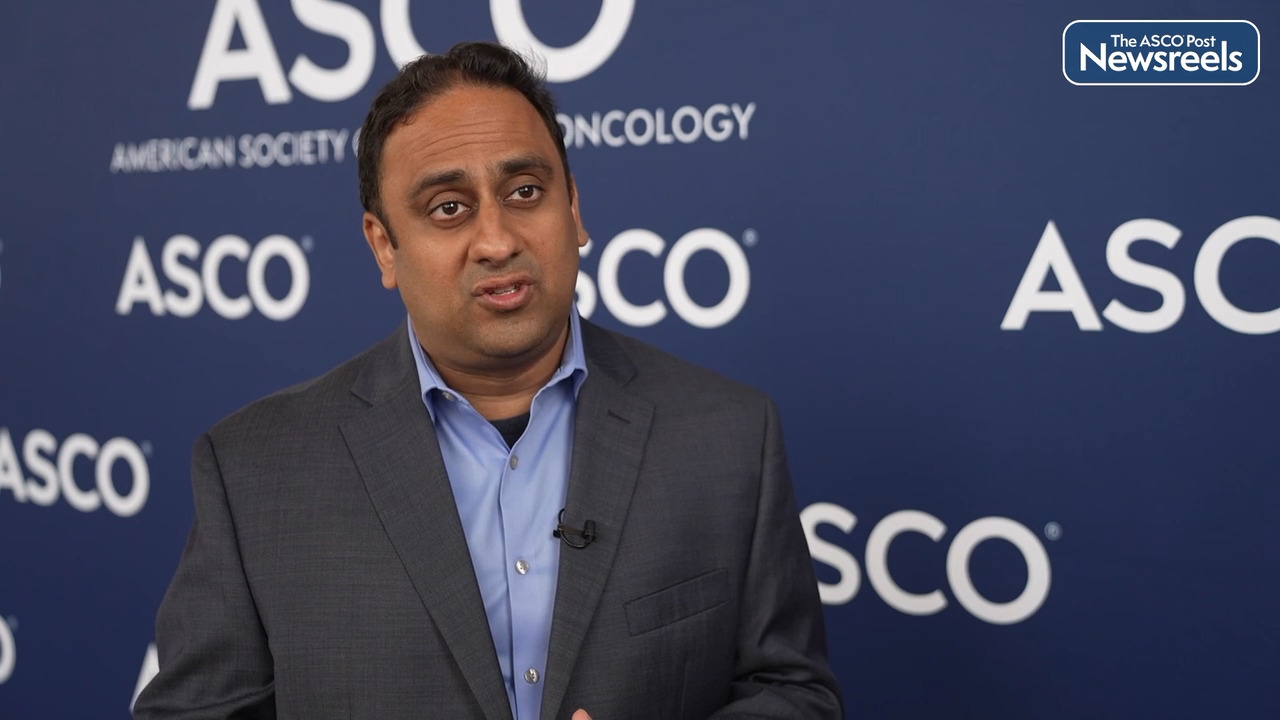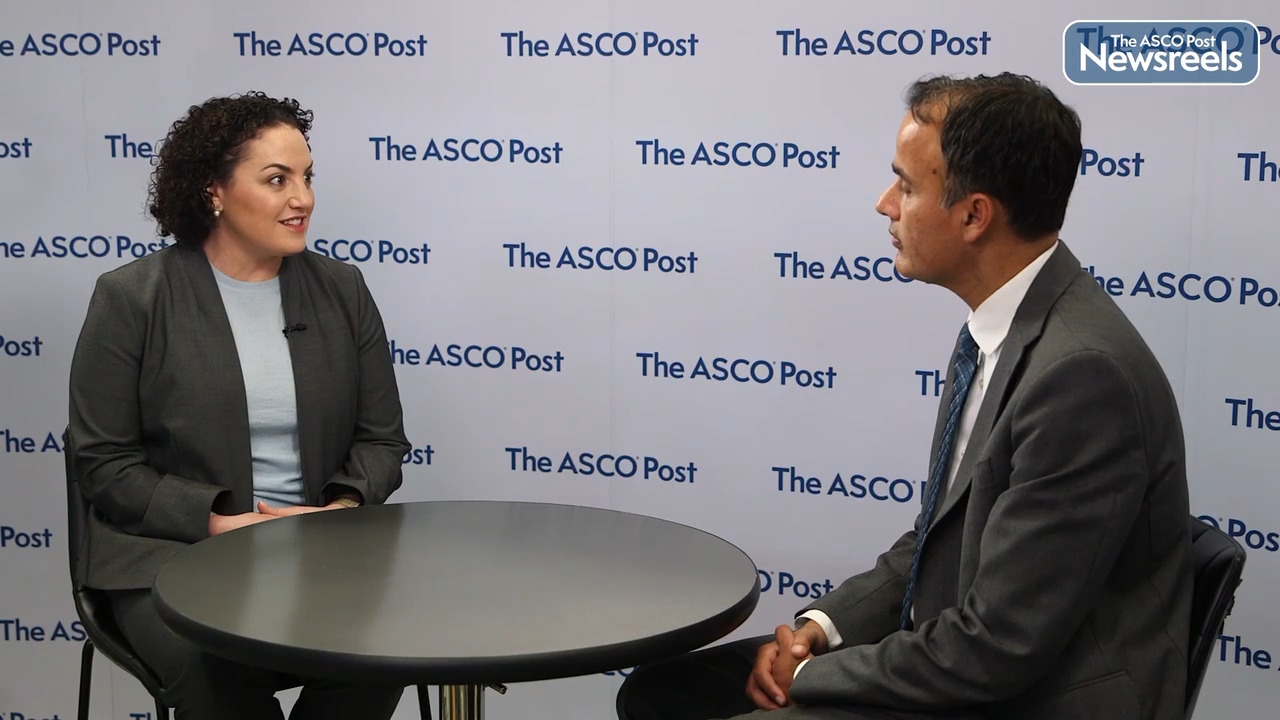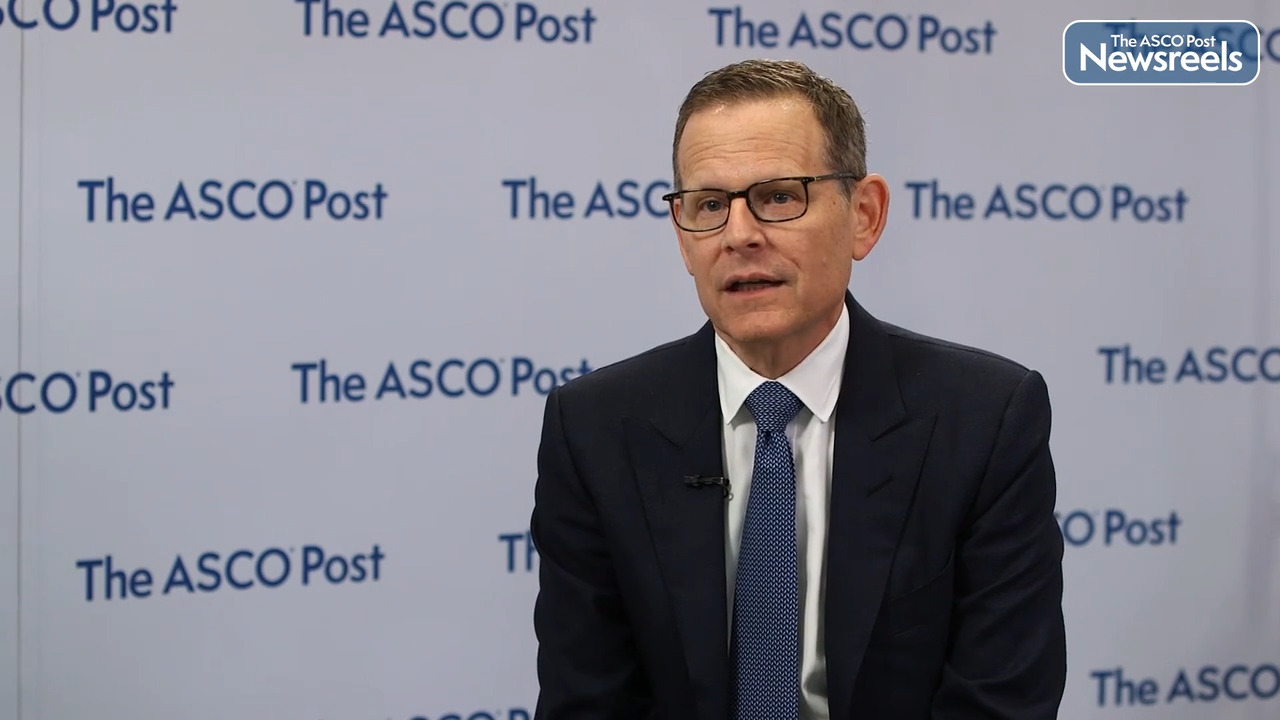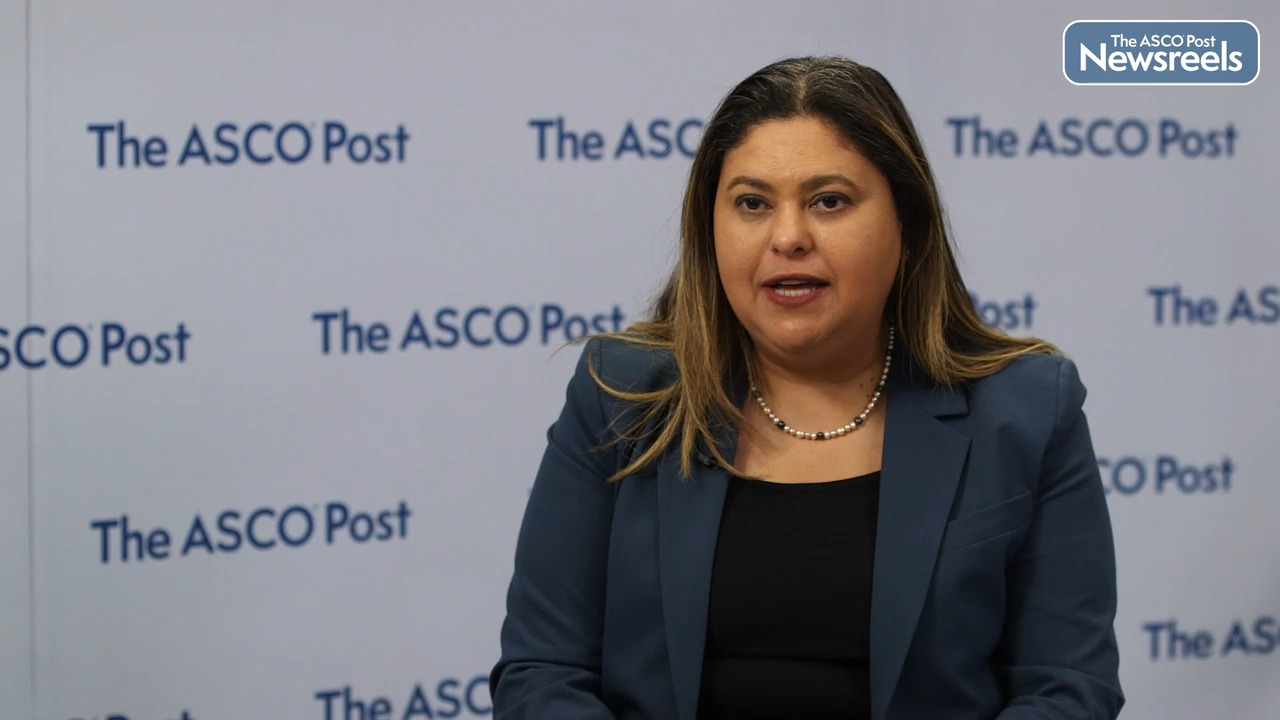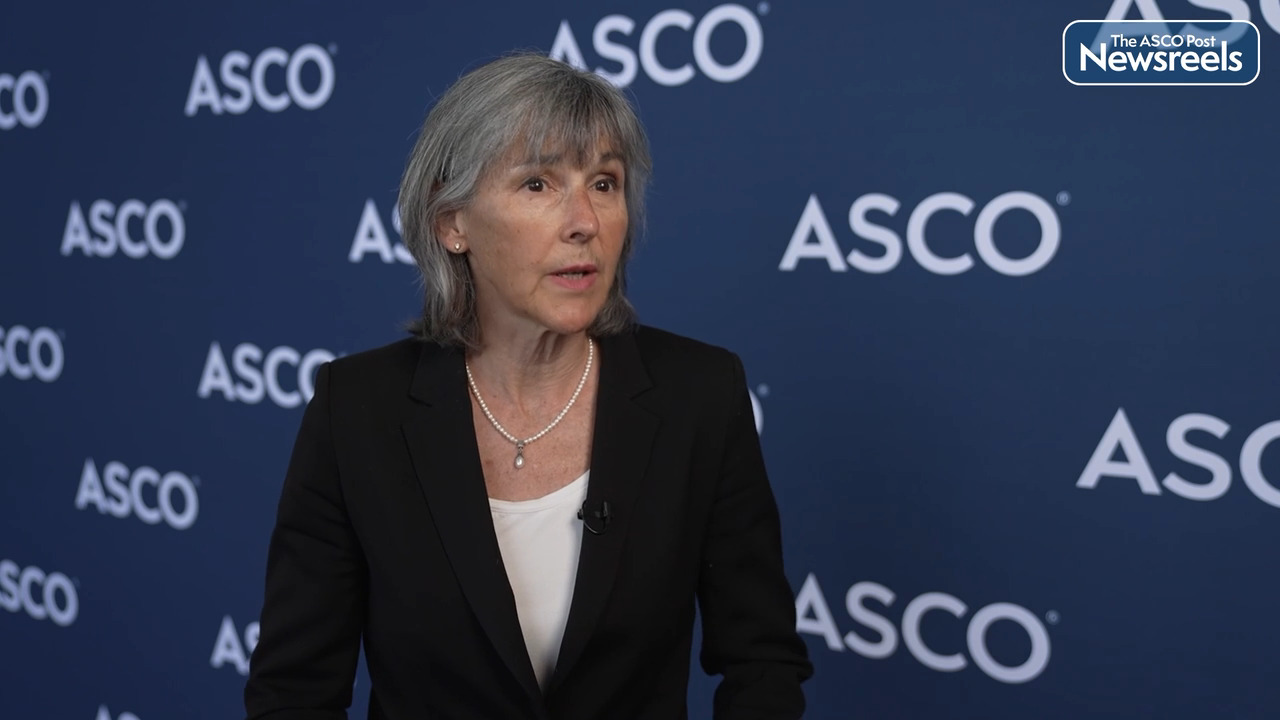Jennifer L. Crombie, MD, on DLBCL: Real-World Outcomes With Novel Therapies in Relapsed or Refractory Disease
2023 ASCO Annual Meeting
Jennifer L. Crombie, MD, of Dana-Farber Cancer Institute, discusses the historically poor outcomes for patients with relapsed or refractory diffuse large B-cell lymphoma (DLBCL). Her study examined real-world data on the use of novel therapies in this population and found that outcomes with second- and third-line regimens of polatuzumab vedotin-piiq plus bendamustine and rituximab and tafasitamab plus lenalidomide remain suboptimal, with worse outcomes particularly after chimeric antigen receptor T-cell therapy (Abstract 7552).
Transcript
Disclaimer: This video transcript has not been proofread or edited and may contain errors.
Jennifer L. Crombie, MD:
We know that the treatment landscape of diffuse large B-cell lymphoma or DLBCL has significantly evolved over the past few years since the availability of multiple new therapeutic options that are now FDA approved for this disease. The outcomes of patients in the real world setting utilizing these novel agents, however, remains less clearly described. In our study, we utilize the CODA Electronic Health records database, which consists of patient demographic and clinical information from both academic and community practice sites across the United States.
We identified over 5,700 patients with a diagnosis of DLBCL in the database. And further within this cohort, we identified 175 patients with relapsed refractory disease, who had been treated with a novel therapy. Novel therapies consisted of chimeric antigen receptor T-cell therapy, or CAR-T therapy, Tafasitamab plus Lenalidomide, Polatuzumab plus Bendamustine and Rituximab, and along Cetuximab, there were no patients in the database treated with Selinexor.
Patients were also required to have at least one post index response assessment or date of death recorded following their treatment with the novel therapy. Patients were further classified as having received two or more versus three or more lines of therapy. We next examined outcomes within each treatment group. We found that outcomes were best among the patients treated with CAR T-cell therapy with overall response rates of approximately 75% and a median overall survival of 27 in 18 months, in patients who had received two or greater versus three or later lines of therapy.
Outcomes were poorer among patients who had received other novel therapies. Those patients treated with Polatuzumab based regimens had an overall response of approximately 60% and a median overall survival of 7.5 months. And patients treated with Tafasitamab based regimens had response rates ranging from 35 to 40% depending on the line of therapy and a median overall survival of approximately six months.
Patients treated with novel therapies after CAR T-cell had a particularly poor outcomes with overall survivals of less than three months. While it's encouraging that novel therapies are now available for patients with relapse or refractory DLBCL, our data highlight the persistent poor outcomes that are seen in the relapsed refractory setting, particularly after CAR-T relapse and the urgent need for ongoing treatment options in this space. Thankfully, other drugs including CD20, CD3 bispecific antibodies, as well as other novel therapies and combinations are being studied in ongoing clinical trials.
The ASCO Post Staff
Nirav N. Shah, MD, of the Medical College of Wisconsin, discusses phase II results showing that split-dose R-CHOP offers older patients with diffuse large B-cell lymphoma (DLBCL) an equivalent dose intensity as R-CHOP-21 through a fractionated dosing schedule, improving tolerability. At the end of treatment for these older patients, a complete response rate of 71% was comparable to outcomes with R-CHOP in younger patients with the disease (Abstract 7554).
The ASCO Post Staff
Allison Betof Warner, MD, PhD, of Stanford University Medical Center, and Adnan Khattak, MBBS, FRACP, PhD, of Australia’s Hollywood Private Hospital & Edith Cowan University, discuss the use of the mRNA-4157 vaccine in combination with pembrolizumab as adjuvant therapy for resected high-risk melanoma, which prolonged distant metastasis–free survival compared with pembrolizumab alone. These results provide further evidence that a personalized neoantigen approach is potentially beneficial (Abstract LBA9503).
The ASCO Post Staff
Clifford A. Hudis, MD, ASCO Chief Executive Officer, talks about extending the reach and impact of ASCO by partnering with patients who play a key role in advancing science through clinical trial participation. With near-record numbers of registered attendees, the 2023 Annual Meeting fostered new connections and plans for collaborations.
The ASCO Post Staff
Nagla Abdel Karim, MD, of the Inova Schar Cancer Institute, University of Virginia, discusses phase II data showing that maintenance atezolizumab plus talazoparib improved progression-free survival in Schlafen-11–selected patients with extensive-stage small cell lung cancer. This study demonstrated the feasibility of conducting biomarker-selected trials in this disease, paving the way for future evaluation of novel therapies in selected populations (Abstract 8504).
The ASCO Post Staff
Marie Plante, MD, of Canada’s Université Laval and the CHUQ Hotel Dieu de Québec, discusses phase III results from a study that compared radical hysterectomy and pelvic node dissection vs simple hysterectomy and pelvic node dissection in patients with low-risk early-stage cervical cancer. The pelvic recurrence rate at 3 years in the women who underwent simple hysterectomy is not inferior to those who had radical hysterectomy. In addition, fewer surgical complications and better quality of life were observed with simple hysterectomy (LBA5511).
